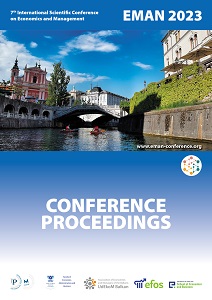Emergence of Wine Destinations and Wine Products: For a Few Wine Experiences More
Emergence of Wine Destinations and Wine Products: For a Few Wine Experiences More
Author(s): Patrik Kubát
Subject(s): Social Sciences, Economy
Published by: Udruženje ekonomista i menadžera Balkana
Keywords: Destination attributes; Wine tourism; Development; Winescape
Summary/Abstract: Wine destinations appeared as places where anyone can come to enjoy nature, food, cultural habits, food, and wine, whether they consume it or not. The intersection and combination of two different sectors (viticulture and tourism) became a new type of tourism and a new marketing tool to attract tourists, consumers, and customers to wine destinations as places of new experiences. Similarly, Sergio Leone had no idea of the story of the sequel to his famous Spaghetti Western. Just as wine destinations had no idea of the possible interconnection of different sectors and how this development would evolve. Was that development intended or was it made more spontaneously by actors on the side of supply and participants on the side of demand, or cooperation of both as prosumers? In retrospect, this development can be evaluated as natural, as evidenced by the continued interest in this phenomenon. The article is a kind of contemplation and discusses the emergence and development of wine destinations from a regional, national, and international perspective in the context of wine tourism. The method of synthesis is used to capture the connection of parts to a whole. The whole in this case is a wine destination composed of various attributes (as a destination), activities (as a product and services), people (as a place to work), and values (as a catalyst for emotions and experiences). The so-called research from the table includes both the theoretical controversy and a look at the current wine tourism and wine destinations from a different angle in the field of marketing, management, or sustainability.
Book: EMAN 2023 / 7 – Economics & Management: How to Cope with Disrupted Times - CONFERENCE PROCEEDINGS
- Page Range: 257-261
- Page Count: 6
- Publication Year: 2023
- Language: English
- Content File-PDF

